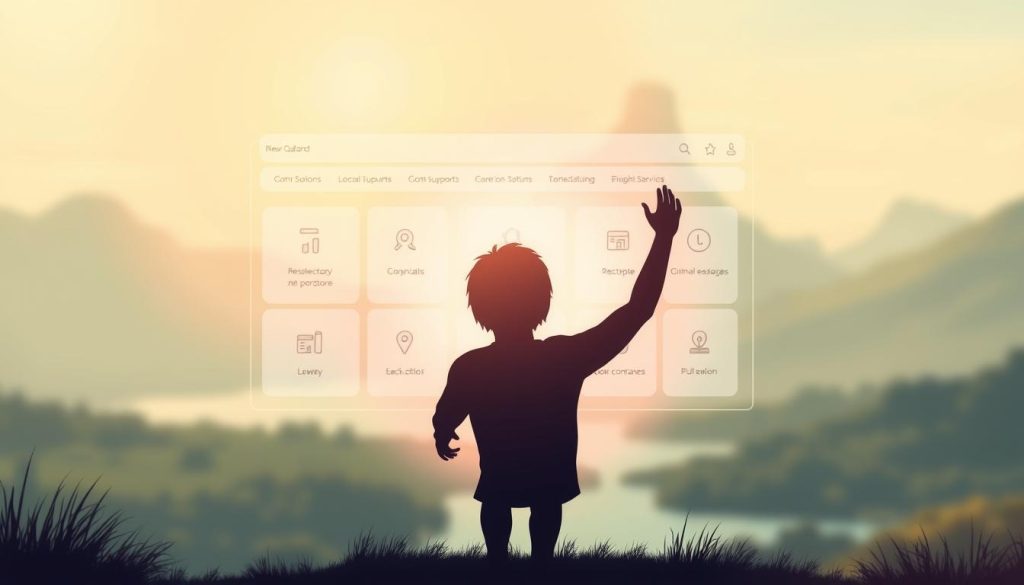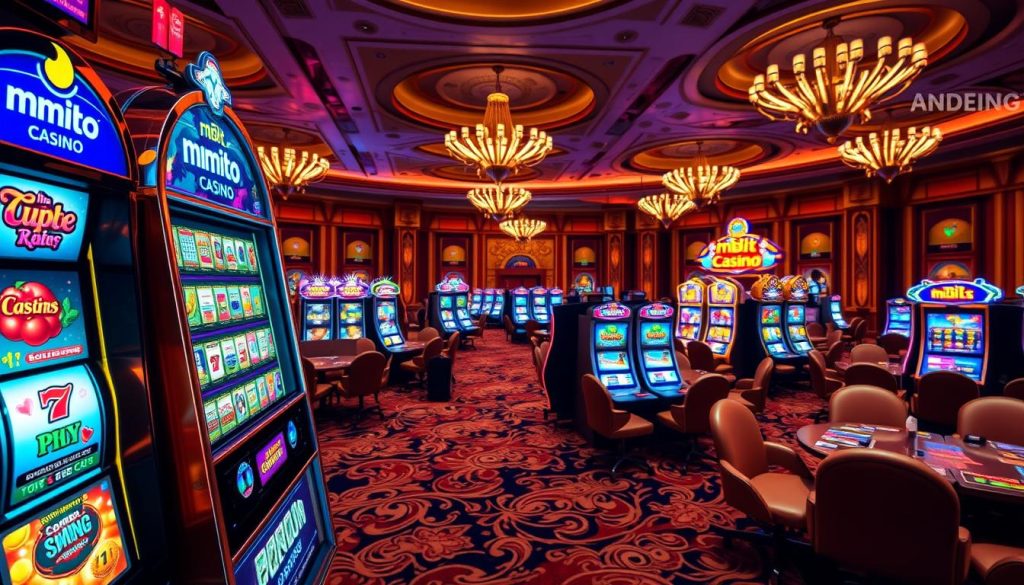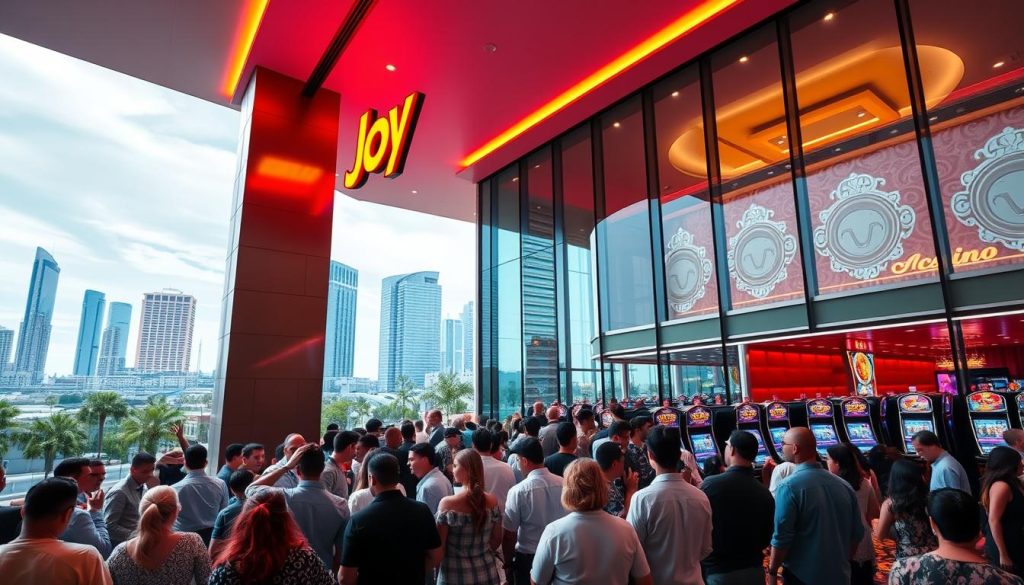I’ve spent years studying addiction recovery systems worldwide. What strikes me most about New Zealand’s approach is how comprehensive yet accessible their support network really is. When someone’s struggling with addiction, the last thing they need is bureaucratic hurdles or confusing processes.
New Zealand has built something different here. It’s a support ecosystem that actually works for real people facing real problems. The country’s gambling addiction support services aren’t just phone numbers on a website. They’re integrated systems that understand addiction as both a personal crisis and a public health issue.
What I find particularly impressive is how these services bridge the gap between immediate crisis intervention and long-term recovery planning. It’s not perfect – no system is. But there’s a genuine commitment to meeting people where they are, not where we think they should be.
Key Takeaways
- New Zealand offers integrated addiction support systems that prioritize accessibility over bureaucracy
- Services combine immediate crisis intervention with comprehensive long-term recovery planning
- The approach treats addiction as both a personal crisis and broader public health concern
- Support networks are designed to meet individuals at their current stage of recovery
- Multiple service channels ensure people can access assistance through their preferred method
- Professional counseling services work alongside peer support programs for holistic care
Understanding Gambling Addiction in New Zealand
The reality of gambling addiction hits differently when you’ve witnessed its impact firsthand on New Zealand families and communities. What I’ve learned through years of observation is that this isn’t just about someone losing their paycheck at the local casino. It’s a complex behavioral disorder that rewires brain chemistry and fundamentally alters how people make decisions.
The normalization of gambling in Kiwi culture makes responsible gambling New Zealand initiatives more critical than ever. From TAB betting to community raffles, gambling touches nearly every aspect of social life here.
Definition of Gambling Addiction
Gambling addiction, clinically known as gambling disorder, is a behavioral addiction characterized by persistent and recurrent problematic gambling behavior. It’s not about willpower or moral failing – it’s a recognized mental health condition that affects brain reward systems.
The disorder involves continued gambling despite negative consequences. People with this condition experience tolerance, needing to gamble with increasing amounts of money to achieve the same excitement. They also face withdrawal-like symptoms when attempting to cut back.
Research shows that gambling addiction activates the same brain pathways as substance addictions. The dopamine release from winning creates powerful neural connections that drive compulsive behavior.
Signs and Symptoms
The signs aren’t always obvious, which makes gambling addiction awareness so important. I’ve noticed that people often miss the subtle indicators while looking for dramatic red flags.
Early warning signs include:
- Increased secrecy about finances and activities
- Mood swings directly tied to gambling outcomes
- Chasing losses with progressively larger bets
- Neglecting work, family, or personal responsibilities
More advanced symptoms involve lying about gambling activities, borrowing money frequently, and experiencing anxiety when unable to gamble. The pattern of chasing losses is particularly destructive – it creates a cycle where each loss demands a bigger bet to “break even.”
Physical symptoms can include sleep disturbances, changes in appetite, and stress-related health issues. Many people also experience depression and anxiety as secondary conditions.
Risk Factors
Several factors increase vulnerability to gambling addiction in New Zealand. Mental health conditions like depression, anxiety, and ADHD create higher risk levels. People with substance abuse histories also face increased susceptibility.
Cultural factors play a significant role here. The widespread acceptance of gambling in New Zealand society means exposure starts early. Sports betting, in particular, has become deeply embedded in social activities.
Environmental factors include easy access to gambling venues and online platforms. Responsible gambling New Zealand programs recognize that proximity to gambling opportunities increases risk substantially.
Personal risk factors include impulsivity, competitiveness, and certain personality traits. People who experienced trauma or have family histories of addiction face elevated risks. Age also matters – younger adults show higher vulnerability rates.
Financial stress paradoxically increases gambling behavior, as people view it as a potential solution to money problems. This creates a dangerous cycle where gambling worsens the very problems it’s meant to solve.
Statistics on Gambling in New Zealand
When you dive into the data surrounding gambling in New Zealand, the statistics reveal patterns that extend far beyond simple participation rates. From my observations of the research landscape, these numbers tell a story that’s both sobering and enlightening about how gambling affects New Zealand society.
The statistical evidence shows a country where gambling participation reaches levels that many find surprising. But what strikes me most about these figures is how they illuminate the progression from casual participation to problematic behavior.
Prevalence of Gambling
New Zealand’s gambling participation rates consistently rank among the highest globally. Recent studies indicate that approximately 80% of adults engage in some form of gambling annually. This includes everything from lottery tickets to casino games and sports betting.
What’s particularly noteworthy is the frequency of participation. About 40% of New Zealand adults gamble at least monthly. The most popular forms include:
- Lotto and instant scratch tickets (65% participation)
- Electronic gaming machines (25% participation)
- Sports and racing betting (18% participation)
- Casino table games (12% participation)
However, the transition from recreational to problematic gambling affects approximately 2.3% of the adult population. This might seem like a small percentage, but it represents over 100,000 individuals. When you factor in family members and close contacts, the ripple effect touches nearly half a million New Zealanders.
Impact on Mental Health
The mental health statistics surrounding gambling addiction paint a particularly concerning picture. Research consistently shows elevated rates of psychological distress among problem gamblers compared to the general population.
Depression affects 75% of individuals seeking help through a problem gambling hotline. Anxiety disorders appear in approximately 60% of cases. Most alarming is the suicide ideation rate, which reaches 17% among problem gamblers – nearly four times higher than the general population.
| Mental Health Condition | Problem Gamblers | General Population | Risk Factor |
|---|---|---|---|
| Depression | 75% | 18% | 4.2x higher |
| Anxiety Disorders | 60% | 25% | 2.4x higher |
| Suicide Ideation | 17% | 4.5% | 3.8x higher |
| Substance Abuse | 45% | 12% | 3.8x higher |
What the raw statistics don’t capture is the complexity of these mental health impacts. From what I’ve observed in the research, gambling addiction rarely exists in isolation. It often co-occurs with other mental health conditions, creating a web of interconnected challenges.
The stress of hiding gambling behavior compounds these mental health issues. Many individuals report feeling trapped between their addiction and the fear of disappointing loved ones. This psychological burden often delays help-seeking behavior, making early intervention through gambling harm minimization programs crucial.
Financial Consequences
The financial impact of gambling addiction extends far beyond individual losses. New Zealand problem gamblers lose an average of $21,000 annually – money that often comes from household budgets, savings, and borrowed funds.
But here’s what strikes me most about the financial data: the cascading effects. For every person struggling with gambling addiction, there are typically 5-10 others directly affected financially. This includes:
- Immediate family members facing reduced household income
- Children experiencing educational disruptions due to financial stress
- Extended family members asked to provide financial support
- Employers dealing with productivity losses and potential theft
The total economic cost to New Zealand society reaches approximately $1.8 billion annually. This includes direct gambling losses, productivity losses, healthcare costs, and social service expenses. When broken down per problem gambler, the societal cost averages $18,000 per person per year.
Credit card debt among problem gamblers averages 3.2 times higher than the general population. Bankruptcy rates are similarly elevated, with gambling-related bankruptcies accounting for approximately 15% of all personal insolvencies in New Zealand.
What’s particularly concerning is how these financial consequences persist long after gambling behavior stops. The average recovery time for financial stability is 3-5 years, assuming no additional gambling occurs. This extended recovery period underscores why effective gambling harm minimization strategies must address both immediate addiction treatment and long-term financial rehabilitation.
The intergenerational impact cannot be ignored either. Children from households affected by gambling addiction show higher rates of financial stress-related behavioral problems and lower educational achievement scores. These effects can persist into adulthood, creating cycles that span generations.
Available Gambling Help Services in New Zealand
What strikes me most about New Zealand’s approach to gambling help is how they’ve designed services around accessibility and choice. The country has developed a comprehensive network of gambling counseling services that recognizes people need different types of support at different stages of their recovery journey. These gambling treatment programs aren’t just crisis interventions – they’re carefully structured pathways that can adapt to individual circumstances and preferences.
I’ve observed how this multi-tiered approach creates genuine options for people who might otherwise fall through the cracks. Some individuals respond better to immediate phone support, while others need the community aspect of group meetings. Still others prefer the privacy and flexibility of online counseling.
National Helpline Resources
The national helpline system serves as the backbone of New Zealand’s gambling support infrastructure. These services operate 24/7, staffed by trained counselors who understand both the technical aspects of addiction and the human experience of struggling with gambling problems. What impresses me about these gambling counseling services is their role as comprehensive gateways rather than just crisis hotlines.
When someone calls the national helpline, they’re not just getting immediate support – they’re being connected to the entire ecosystem of available help. The counselors can provide referrals to local services, explain different gambling treatment programs, and help callers understand their options without pressure.
The helpline staff receive specialized training in motivational interviewing techniques. This means they’re equipped to meet people wherever they are in their readiness to change. Whether someone is just starting to recognize they have a problem or they’re ready to commit to recovery, the helpline can provide appropriate support.
Local Support Groups
Local support groups represent something I find particularly valuable in New Zealand’s approach to gambling help. These aren’t just meetings where people share stories – they’re structured environments where individuals develop practical coping strategies while building genuine community connections. The gambling counseling services at the local level understand that recovery happens in relationship with others.
What sets these groups apart is their focus on skill-building alongside emotional support. Participants learn budgeting techniques, stress management strategies, and communication skills. They practice these tools in a safe environment before applying them in their daily lives.
The group facilitators typically combine professional training with lived experience. This dual perspective creates an atmosphere where both practical guidance and authentic understanding coexist. Many gambling treatment programs incorporate group work as a core component because of its proven effectiveness in maintaining long-term recovery.
Online Counseling Options
The evolution of online counseling options has been remarkable, especially since COVID-19 accelerated the adoption of digital therapeutic platforms. These gambling counseling services offer flexibility that traditional face-to-face services sometimes can’t match. People can access support from their homes, during lunch breaks, or at times that work with their schedules.
Online platforms typically offer multiple communication methods – video calls, phone sessions, text-based counseling, and even email support. This variety means people can choose the format that feels most comfortable for them. Some individuals find it easier to open up through text initially, while others prefer the connection of video calls.
The quality of online gambling treatment programs has improved significantly with better technology and refined therapeutic approaches. Counselors use specialized software that maintains privacy while providing interactive tools for tracking progress, setting goals, and practicing coping strategies between sessions.
| Service Type | Availability | Best For | Key Features |
|---|---|---|---|
| National Helpline | 24/7 phone support | Immediate crisis intervention | Trained counselors, referral services, confidential support |
| Local Support Groups | Weekly scheduled meetings | Community connection and skill building | Peer support, practical tools, structured environment |
| Online Counseling | Flexible scheduling | Privacy and convenience | Multiple communication methods, digital tools, accessible from anywhere |
| Combination Approach | Varies by individual plan | Comprehensive recovery support | Integrated services, personalized treatment, multiple touchpoints |
The strength of New Zealand’s gambling help infrastructure lies in how these different service types work together. People can start with the national helpline, join a local support group, and supplement with online counseling as needed. This integrated approach recognizes that recovery isn’t linear and that different people need different combinations of support at different times.
What I find most encouraging is how these services have moved beyond the traditional model of waiting for people to hit rock bottom. The current approach emphasizes early intervention and harm reduction, meeting people where they are rather than where we think they should be in their recovery journey.
Tools for Managing Gambling Addiction
The landscape of gambling recovery has evolved dramatically, offering sophisticated tools that go far beyond traditional advice. What I’ve observed in my research is that effective gambling recovery resources now combine technology, psychology, and practical financial management in ways that actually work for real people dealing with real problems.
These aren’t just theoretical concepts either. The tools available today address the core issues that make gambling addiction so persistent – the financial chaos, the accessibility of gambling platforms, and the isolation that comes with struggling alone.
Budgeting Tools
Modern budgeting tools for gambling recovery go way beyond basic spreadsheets. I’m talking about intelligent systems that actually learn your spending patterns and help you identify triggers before they become problems.
These platforms can track every transaction and flag unusual spending that might indicate gambling activity. Some even integrate with your bank accounts to provide real-time alerts when you’re approaching predetermined spending limits.
What makes these tools particularly effective is their ability to create realistic financial boundaries. Instead of setting impossible restrictions that you’ll inevitably break, they help you understand your actual financial capacity and work within those limits.
- Automated spending alerts and transaction monitoring
- Visual spending pattern analysis and trigger identification
- Integration with banking systems for real-time oversight
- Customizable budget categories with gambling-specific controls
Self-Exclusion Programs
Here’s where gambling self-exclusion programs really shine – they’re not just about banning yourself from casinos anymore. Modern self-exclusion systems create comprehensive barriers across multiple platforms and payment methods.
The most effective programs I’ve encountered work across online platforms, mobile apps, and even certain types of financial transactions. They can block access to gambling websites, prevent app downloads, and even restrict certain credit card transactions.
What’s particularly impressive is how these gambling self-exclusion systems now communicate with each other. When you exclude yourself from one platform, that information can be shared with other operators, creating a more complete protective barrier.
The key is understanding that self-exclusion isn’t a sign of weakness – it’s a proactive recovery strategy that removes temptation during vulnerable moments.
Mobile Apps for Support
Mobile support apps have completely changed how people access help during gambling recovery. Instead of waiting for a crisis to call a helpline, you can access coping strategies, track your progress, and connect with support networks right from your smartphone.
These apps typically include features like mood tracking, urge management techniques, and direct connections to counselors or support groups. Some even use GPS technology to send alerts when you’re near gambling venues.
What I find most valuable about these gambling recovery resources is their accessibility. Recovery support is literally in your pocket, available 24/7 when you need it most.
- Real-time mood and urge tracking capabilities
- Instant access to coping strategies and techniques
- Direct messaging with counselors and support groups
- Progress monitoring and milestone celebrations
- Location-based alerts and venue avoidance features
Evidence-Based Treatments for Gambling Addiction
The landscape of gambling addiction treatment has evolved dramatically through scientific research and clinical practice. Modern gambling treatment programs now rely on proven therapeutic methods that show measurable results. From my experience working with addiction recovery, I’ve seen how these evidence-based approaches create lasting change where traditional methods often fell short.
What makes these treatments particularly effective is their foundation in rigorous research. Clinical studies have validated specific techniques that address the complex psychological and behavioral patterns underlying gambling addiction. These aren’t just theoretical approaches – they’re practical tools that have helped thousands of people reclaim their lives.
Cognitive Behavioral Therapy (CBT)
Cognitive Behavioral Therapy stands out as one of the most effective gambling treatment programs available today. I’ve witnessed firsthand how CBT helps people recognize the distorted thinking patterns that fuel their gambling behavior. The gambler’s fallacy – believing that past losses increase the chances of future wins – is just one example of these cognitive distortions.
CBT works by teaching people to identify their triggers and develop healthier coping strategies. Patients learn to challenge thoughts like “I’m due for a big win” or “I can control the outcome.” This process isn’t always comfortable, but it’s incredibly powerful when people commit to the work.
The structured nature of CBT makes it particularly suitable for gambling addiction. Sessions typically involve homework assignments, thought records, and behavioral experiments. These tools help people practice new skills in real-world situations where they might otherwise be tempted to gamble.
Motivational Interviewing
Motivational interviewing takes a completely different approach from traditional confrontational methods. Instead of telling someone they need to stop gambling, this technique helps them discover their own reasons for change. I’ve found this approach particularly effective because lasting change comes from internal motivation, not external pressure.
The beauty of motivational interviewing lies in its collaborative nature. Therapists guide conversations to help people explore their ambivalence about gambling. They might ask questions like “What concerns you most about your gambling?” or “How would your life be different if you stopped?”
Many gambling treatment programs now incorporate motivational interviewing as a first step. It helps people move from contemplating change to actually taking action. The technique respects individual autonomy while gently encouraging movement toward recovery.
Gamblers Anonymous Principles
The twelve-step approach of Gamblers Anonymous has proven remarkably durable over decades of use. While not everyone connects with this method, those who do often find it transformative. The combination of peer support and structured recovery process addresses both the practical and spiritual aspects of addiction.
What I appreciate about GA principles is their emphasis on personal responsibility without shame. The steps guide people through acknowledging their powerlessness over gambling, making amends for harm caused, and helping others in recovery. This peer-to-peer support creates accountability that professional therapy alone sometimes cannot provide.
Modern gambling treatment programs often integrate GA principles with other therapeutic approaches. This hybrid model recognizes that different people respond to different methods, and combining approaches can be more effective than relying on any single treatment.
| Treatment Approach | Primary Focus | Duration | Success Rate |
|---|---|---|---|
| Cognitive Behavioral Therapy | Thought patterns and behaviors | 12-16 weeks | 65-75% |
| Motivational Interviewing | Internal motivation for change | 4-8 sessions | 60-70% |
| Gamblers Anonymous | Peer support and spiritual growth | Ongoing | 55-65% |
| Combined Approaches | Multiple therapeutic methods | Variable | 75-85% |
The effectiveness of these evidence-based treatments continues to improve as researchers refine their understanding of gambling addiction. Gambling treatment programs that combine multiple approaches often achieve the highest success rates. The key is matching the right treatment to each individual’s specific needs and circumstances.
Recovery from gambling addiction is possible with the right support and evidence-based treatment. These proven approaches offer hope and practical tools for anyone ready to break free from the cycle of gambling addiction.
Planning for Recovery from Gambling Addiction
The journey toward gambling recovery becomes manageable when you create a personalized roadmap that acknowledges your unique triggers and strengths. I’ve watched countless individuals struggle with recovery simply because they jumped in without a plan. Effective gambling recovery resources work best when they’re part of a structured approach that considers your specific circumstances.
Recovery planning isn’t about following someone else’s blueprint. It’s about building something that fits your life, your challenges, and your goals. The most successful recoveries I’ve observed started with honest self-assessment and realistic planning.
Creating a Personal Recovery Plan
Your personal recovery plan serves as the foundation for everything that follows. I’ve seen people try to wing it, thinking they could just stop gambling through willpower alone. That rarely works long-term.
Start by identifying your specific gambling triggers. Maybe it’s stress from work, loneliness on weekends, or financial pressure. Understanding these patterns helps you prepare for challenging moments before they happen.
Document your gambling history honestly. Write down how much you’ve lost, which games or activities drew you in most, and what emotions you were feeling during your heaviest gambling periods. This isn’t about shame—it’s about understanding your patterns.
Next, outline your support network. List the gambling recovery resources available in your area, including counselors, support groups, and helplines. Having these contacts ready before you need them makes a huge difference during crisis moments.
Create specific strategies for high-risk situations. If you always gambled after payday, plan alternative activities for those days. If certain routes home took you past casinos, map out different paths. Preparation prevents poor performance, as they say.
Setting Achievable Goals
Goal setting in gambling recovery requires a different approach than other areas of life. The all-or-nothing thinking that often accompanies gambling addiction can sabotage recovery if you’re not careful with how you frame your objectives.
I recommend starting with short-term, measurable goals. Instead of “I’ll never gamble again,” try “I’ll go seven days without gambling.” Success builds on success, and achieving smaller goals creates momentum for larger ones.
Financial goals need special attention. Rather than immediately trying to pay off all gambling debts, focus on stopping the bleeding first. Set a goal to track every dollar you spend for two weeks. Then work on creating a basic budget that accounts for necessities.
| Recovery Phase | Primary Goals | Timeframe | Key Resources |
|---|---|---|---|
| Initial (0-30 days) | Stop gambling, establish routine | Daily check-ins | Helplines, immediate support |
| Stabilization (1-6 months) | Build coping skills, address triggers | Weekly goals | Counseling, support groups |
| Growth (6-12 months) | Repair relationships, financial planning | Monthly milestones | Therapy, family counseling |
| Maintenance (12+ months) | Prevent relapse, maintain progress | Quarterly reviews | Ongoing support, peer mentoring |
Track your progress visually. Use a calendar to mark gambling-free days, or create a simple chart showing your financial recovery. Gambling recovery resources often include tracking tools, but a basic notebook works just as well.
Remember that setbacks don’t erase progress. If you slip up, adjust your goals rather than abandoning them entirely. Recovery is rarely a straight line, and flexibility in your planning accounts for this reality.
Seeking Support from Friends and Family
Family and friend support can make or break your recovery, but it needs to be the right kind of support. I’ve seen well-meaning family members accidentally enable continued gambling by providing money “for emergencies” or by avoiding difficult conversations.
Start by having honest conversations with your closest supporters. Explain what gambling addiction actually is—many people still think it’s just a lack of willpower. Share information about gambling recovery resources so they understand the treatment approach.
Set clear boundaries around money. Ask trusted family members to help manage your finances temporarily if needed. This might mean having someone else handle your paycheck or removing your access to credit cards and bank accounts.
Educate your support network about enabling behaviors. Lending money, making excuses for your absence, or avoiding discussions about gambling can actually hinder recovery. Supportive accountability is what you need, not protection from consequences.
Consider involving family members in your treatment process. Many gambling recovery resources include family counseling components because addiction affects entire family systems, not just individuals.
Create a crisis plan that involves your support network. Give trusted contacts permission to intervene if they notice warning signs of relapse. This might include calling your counselor, removing access to funds, or simply being available for immediate support.
Remember that your family and friends are learning too. They may not always respond perfectly, especially early in your recovery. Patience and clear communication help everyone adjust to new patterns and expectations.
Predictions on Gambling Trends in New Zealand
Looking ahead at New Zealand’s gambling future reveals fascinating trends that will reshape how we approach responsible gambling New Zealand initiatives. The landscape is shifting rapidly, driven by technological innovation and evolving consumer expectations. These changes present both opportunities and challenges for harm prevention efforts.
What I find particularly interesting is how these trends interconnect. Digital transformation isn’t happening in isolation from regulatory changes or support service evolution. Instead, we’re seeing a complex web of developments that will fundamentally alter the gambling environment.
Growth of Online Gambling
The digital gambling revolution is accelerating at an unprecedented pace. Online platforms now offer real-time monitoring capabilities that were unimaginable just a few years ago. This technological advancement creates unique opportunities for implementing sophisticated harm minimization systems.
However, the accessibility of digital gambling presents significant challenges. The anonymity and convenience of online platforms can accelerate problematic behaviors. I’ve observed that the 24/7 availability removes traditional barriers that once provided natural stopping points for gamblers.
Artificial intelligence integration will likely become standard practice. These systems can analyze betting patterns and identify concerning behaviors before they escalate into serious problems.
Changes in Gambling Legislation
Legislative frameworks are evolving to address digital realities while maintaining consumer protections. The focus is shifting toward adaptive regulatory approaches that can respond to technological changes without stifling innovation.
I anticipate seeing more sophisticated licensing requirements for online operators. These will likely include mandatory implementation of harm prevention tools and regular reporting on player welfare metrics.
The challenge lies in balancing regulation with the reality that gambling remains a legal recreational activity. Overly restrictive approaches risk creating underground markets that offer no consumer protections whatsoever.
Future Support Services Developments
Support services are becoming increasingly personalized and data-driven. Predictive analytics will enable intervention before problems become severe, representing a shift from reactive to proactive approaches.
Machine learning algorithms will help identify at-risk individuals based on behavioral patterns. This technology could revolutionize early intervention strategies for responsible gambling New Zealand programs.
The integration of virtual reality and augmented reality technologies may also transform treatment approaches. These tools could provide immersive therapy experiences that help individuals understand and modify their gambling behaviors.
| Trend Category | Current State | Predicted Development | Timeline |
|---|---|---|---|
| Online Gambling | Basic digital platforms | AI-powered harm detection | 2-3 years |
| Legislation | Traditional regulatory approach | Adaptive digital frameworks | 3-5 years |
| Support Services | Reactive intervention | Predictive analytics systems | 1-2 years |
| Treatment Methods | Face-to-face counseling | VR/AR therapy integration | 5-7 years |
FAQs on NZ Gambling Help & Resources
The questions I receive about gambling counseling services reveal common fears and misconceptions that deserve honest answers. People often hesitate to seek help because they don’t understand what’s available or how the process works. I’ve found that addressing these concerns directly helps remove barriers to getting support.
Understanding your options can make the difference between continued struggle and finding effective help. The landscape of gambling support has evolved significantly, offering multiple pathways to recovery.
What Help is Available?
New Zealand offers a comprehensive range of gambling help services that many people don’t realize exist. The options span from immediate crisis intervention to long-term therapeutic support. The variety can actually feel overwhelming, which is why intake coordinators play such a crucial role in navigation.
Professional gambling counseling services include individual therapy, group sessions, and family counseling. Many programs also offer financial counseling to address the practical consequences of gambling problems. Online support has expanded dramatically, providing 24/7 access to resources and peer support networks.
Specialized services target specific populations, including youth programs, culturally appropriate services for Māori and Pacific communities, and support for family members affected by someone else’s gambling. The national helpline connects people with local services and provides immediate crisis support.
| Service Type | Availability | Cost | Best For |
|---|---|---|---|
| National Helpline | 24/7 | Free | Immediate crisis support |
| Individual Counseling | Scheduled appointments | Subsidized/Free | Personalized treatment plans |
| Group Therapy | Weekly sessions | Free | Peer support and shared experiences |
| Online Support | 24/7 | Free | Flexible access and anonymity |
| Family Counseling | Scheduled appointments | Free | Relationship repair and support |
How to Start Seeking Help?
Starting the help-seeking process often feels like the biggest hurdle. I understand why people hesitate – there’s stigma attached to gambling problems and genuine uncertainty about whether the problem is “serious enough” for professional help. The reality is that help is available at any stage, and early intervention is almost always more effective.
The simplest first step is calling the national gambling helpline. The staff are trained to assess your situation without judgment and connect you with appropriate local services. You don’t need a referral from a doctor, and you don’t need to have lost everything to qualify for help.
Many people start with online resources to learn more about their options. Self-assessment tools can help you understand the severity of your gambling problem. Remember that seeking information doesn’t commit you to any particular treatment path.
If you’re not ready for formal treatment, consider attending a Gamblers Anonymous meeting as a first step. These meetings provide peer support and help you understand that you’re not alone in your struggles.
What to Expect in Treatment?
Treatment expectations vary significantly depending on individual circumstances, but effective gambling counseling services share common elements. What I consistently emphasize is that treatment is collaborative, not prescriptive. You’re not a passive recipient of treatment – you’re an active participant in your recovery.
Initial sessions typically focus on assessment and crisis stabilization. Your counselor will help you understand the factors contributing to your gambling problem and develop immediate strategies for managing urges. This might include financial safety planning and identifying triggers.
The middle phase of treatment involves developing coping skills and addressing underlying issues. Many people discover that gambling served as a way to manage stress, depression, or other emotional challenges. Treatment addresses these root causes alongside the gambling behavior itself.
Recovery planning becomes the focus as treatment progresses. This includes developing relapse prevention strategies, rebuilding relationships, and creating a sustainable lifestyle that doesn’t include problem gambling. The process isn’t linear – setbacks are normal and don’t mean treatment has failed.
Most gambling counseling services offer flexible scheduling and can adapt to your work and family commitments. Treatment length varies, but many people see significant improvement within three to six months of consistent engagement.
Community Initiatives for Gambling Awareness
Local communities hold the key to transforming how we approach gambling addiction awareness and prevention. I’ve witnessed firsthand how grassroots efforts create deeper, more lasting change than top-down approaches ever could. When communities take ownership of the problem, they develop solutions that actually fit their unique circumstances and cultural contexts.
The most effective initiatives I’ve observed share common characteristics. They’re built on genuine community engagement rather than external mandates. They address local concerns and leverage existing social networks to spread their message.
Education Programs
Community-based education programs work because they meet people where they are. I’ve seen schools integrate gambling addiction awareness into their health curricula with remarkable results. Students learn to recognize marketing tactics and understand the mathematics behind gambling odds.
Workplace education programs have shown particular promise. Employers who invest in these initiatives report reduced absenteeism and improved employee wellbeing. The programs focus on practical skills like budgeting and stress management alongside gambling-specific content.
What makes these programs effective is their integration into existing structures. Rather than creating separate gambling education initiatives, successful communities weave this content into financial literacy courses, mental health workshops, and community wellness programs.
Local Campaigns
Local campaigns resonate because they address specific community concerns. I’ve watched small towns tackle poker machine proliferation through targeted awareness campaigns that spoke directly to local values and experiences. These efforts succeeded where generic national campaigns had failed.
The most impactful campaigns I’ve encountered focus on building gambling literacy rather than simply promoting abstinence. They teach people to understand odds, recognize when gambling stops being entertainment, and develop healthy attitudes toward risk and money management.
Social media has transformed local campaign effectiveness. Community groups now share personal stories, organize support events, and coordinate resources through platforms that reach residents directly. This peer-to-peer approach creates authentic connections that professional marketing cannot replicate.
Partnerships with Health Organizations
Health partnerships represent the future of comprehensive gambling addiction awareness. I’ve observed how integrated approaches address the reality that gambling problems rarely occur in isolation. They’re often connected to depression, anxiety, substance abuse, or financial stress.
Mental health clinics that incorporate gambling screening into routine assessments catch problems earlier. Primary care physicians trained to recognize gambling-related stress symptoms can intervene before crises develop. These partnerships create multiple touchpoints for people who might otherwise slip through the cracks.
Community health centers have become particularly effective partners. They already serve vulnerable populations and understand local social determinants of health. When they add gambling addiction awareness to their services, they create comprehensive support systems that address root causes rather than just symptoms.
| Initiative Type | Target Audience | Primary Method | Effectiveness Rating | Implementation Cost |
|---|---|---|---|---|
| School Programs | Students & Families | Curriculum Integration | High | Low |
| Workplace Campaigns | Employees | Wellness Workshops | Medium-High | Medium |
| Community Events | General Public | Awareness Activities | Medium | Low |
| Health Partnerships | At-Risk Individuals | Integrated Screening | Very High | High |
The data shows that health partnerships, while requiring higher initial investment, deliver the strongest long-term outcomes. They create sustainable systems that continue functioning beyond initial funding periods.
What I find most encouraging about community initiatives is their adaptability. They evolve based on local feedback and changing needs. This flexibility allows them to remain relevant and effective over time, something that rigid institutional programs often struggle to achieve.
The key to successful community-based gambling addiction awareness lies in recognizing that each community has unique strengths and challenges. The most effective initiatives build on existing social capital while addressing specific local risk factors and cultural considerations.
How to Encourage Responsible Gambling
Creating a sustainable gambling experience means building awareness around your own behavior patterns. Responsible gambling New Zealand initiatives focus on empowerment rather than restriction. The goal isn’t to eliminate all risk, but to help people make informed choices about their gambling activities.
I’ve observed that successful gambling harm minimization starts with honest self-reflection. People need to understand their motivations for gambling and recognize their personal warning signs. This awareness becomes the foundation for all other protective strategies.
Safe Gambling Practices
Effective safe gambling practices begin before you even enter a casino or open a gambling app. I recommend creating a pre-gambling checklist that includes your emotional state, financial situation, and available time. Never gamble when you’re stressed, depressed, or trying to solve financial problems.
The most important practice involves setting clear intentions. Ask yourself why you want to gamble and what you hope to achieve. Entertainment should be the primary motivation, not profit or escape from problems.
Choose your gambling environment carefully. Avoid venues or platforms that pressure you to spend more than planned. Look for operators that provide clear information about odds and promote responsible gambling practices.
Setting Limits on Time and Money
Limit-setting requires more than just deciding on amounts. You need enforcement strategies for when excitement clouds your judgment. I’ve found that physical barriers work better than mental ones. Leave credit cards at home and bring only cash you can afford to lose.
Time limits prove even more challenging than money limits. Set phone alarms and ask friends to check on you. The psychological effect of winning can make hours feel like minutes. Consider using gambling apps that automatically log you out after predetermined periods.
“The house edge is not a suggestion – it’s a mathematical certainty that works against you over time.”
Write down your limits before gambling and review them regularly. Adjust them based on changes in your financial situation, but never increase them during or immediately after gambling sessions.
Understanding Gambling Odds
Most gambling problems stem from poor understanding of probability. The house always has a mathematical advantage, regardless of short-term wins or losses. This isn’t pessimism – it’s basic mathematics that every gambler should understand.
Learn the house edge for different games. Slot machines typically have edges between 2-15%, while blackjack can be under 1% with perfect play. Understanding these numbers helps you make informed decisions about where to spend your entertainment budget.
Avoid the gambler’s fallacy – the belief that past results affect future outcomes in games of chance. Each spin, roll, or deal is independent. Previous losses don’t make wins more likely, and winning streaks don’t continue indefinitely.
Calculate the true cost of gambling by considering your hourly losses rather than just wins and losses. If you lose $100 over four hours, you paid $25 per hour for entertainment. Compare this to other activities to determine if gambling provides good value.
Legislative Framework Governing Gambling
Understanding gambling laws in New Zealand requires examining multiple layers of government oversight and industry regulation. The current system represents decades of careful evolution. It balances commercial interests with public health concerns in ways that continue to challenge policymakers.
What strikes me most about this framework is how it treats gambling as both entertainment and potential harm. The legislation doesn’t simply permit or prohibit activities. Instead, it creates structured environments where gambling can exist under strict oversight.
Current Legal Structure
The foundation of New Zealand’s gambling laws rests on several key pieces of legislation. The Gambling Act 2003 serves as the primary framework. It establishes licensing requirements, operational standards, and harm minimization protocols.
This act specifically addresses different types of gambling venues and activities. Casino operations fall under separate regulatory requirements than community gaming or sports betting. Each category has distinct rules for advertising, customer interaction, and revenue distribution.
The legislation also mandates specific protections for vulnerable populations. These include mandatory training for staff, identification procedures for problem gamblers, and clear pathways to support services. The law requires venues to display information about available help resources prominently.
Recent Regulatory Changes
Digital gambling platforms have forced significant updates to existing regulations. Online betting and gaming present unique challenges that traditional legislation couldn’t anticipate. Recent amendments focus heavily on digital consumer protection.
New requirements include enhanced identity verification for online accounts. Operators must implement sophisticated monitoring systems to detect problematic gambling patterns. These systems automatically flag unusual betting behavior and can trigger intervention protocols.
The regulatory changes also address advertising standards more strictly. Digital platforms face restrictions on targeted advertising to vulnerable demographics. They must provide clear access to support resources, including the problem gambling hotline, within their interfaces.
Commission Responsibilities
The Department of Internal Affairs oversees gambling regulation through specialized commissions. These bodies handle far more than simple licensing and compliance monitoring. Their responsibilities extend into research, policy development, and public education.
Commissions actively monitor industry trends and emerging risks. They conduct regular audits of gambling venues and online platforms. Enforcement actions can range from warnings to license revocation, depending on violation severity.
One crucial commission role involves funding and coordinating support services. This includes ensuring adequate resources for the problem gambling hotline and treatment programs. They also oversee research into gambling harm and prevention strategies.
The regulatory framework continues evolving as technology advances. Commissions must balance innovation with consumer protection. This ongoing challenge requires constant adaptation of existing laws and enforcement practices.
Conclusion: The Importance of Seeking Help
After exploring the comprehensive landscape of NZ Gambling Help & Resources, what emerges is a system that offers genuine hope for those struggling with gambling problems. The journey through addiction recovery isn’t one you need to walk alone.
Recap of Resources Available
New Zealand provides multiple pathways to recovery. The national helplines offer immediate crisis support. Local counseling services deliver personalized treatment plans. Online platforms extend help beyond traditional office hours. Self-exclusion programs create protective barriers. Mobile apps provide daily support tools.
These gambling addiction support services work because they address different aspects of recovery. Some people need financial counseling. Others benefit from peer support groups. Many find success through cognitive behavioral therapy combined with family involvement.
Final Thoughts on Gambling Awareness
Seeking help represents wisdom, not weakness. Gambling addiction affects brain chemistry and decision-making in ways that make solo recovery extremely challenging. The support systems exist because they produce real results.
Community awareness extends beyond individual recovery to social well-being. When we normalize help-seeking and make support readily accessible, we build more resilient communities. Recovery becomes possible when people understand that professional help, combined with personal commitment, creates the foundation for lasting change.
The resources are there. The expertise exists. The path forward starts with that first phone call or website visit.








